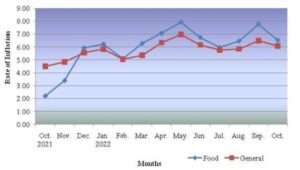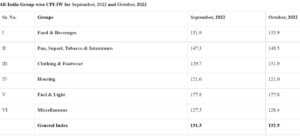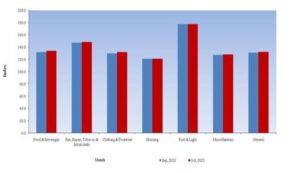Probation / Confirmation in Central Services – Consolidated Information: DoP&T OM dated 24.11.2022
No.DOPT-1669273111735
Government of India
Ministry of Personnel, Public Grievances & Pensions
Department of Personnel and Training
ESTT.(Estt. C)
******
(Dated 24 November, 2022 )
OFFICE MEMORANDUM
Probation / Confirmation in Central Services
This Department has issued various instructions from time to time on the subject of Probation and Confirmation in Central Services. It is now decided to consolidate all such instructions at one place, as under:
PROBATION
1. A person is appointed on probation in order to assess his suitability for absorption in the service to which he has been appointed. Probation should not, therefore, be treated as a mere formality. No formal declaration shall be necessary in respect of appointment on probation. The appointing authority may declare successful completion or extend the period of probation or terminate the services of a temporary employee on probation, on the basis of evaluation of performance.
2. Probation is prescribed when there is direct recruitment, promotion from one Group to another or for officers re-employed before the age of superannuation. The probation shall stand successfully completed upon issue of orders in writing. It is, however, not desirable that a Government servant should be kept on probation for long periods.
O.M. No. 21011/2/80-Estt(C) dt. 19.05.1983 and
O.M. No. AB.14017/5/83-Estt.(RR) dated 07.05.1984
3. Instead of treating probation as a formality, the existing powers to discharge probationers should be systematically and vigorously used so that the necessity of dispensing with the services of employees at later stages may arise only rarely.
4. Concentration of attention on the probationer’s ability to pass the probationary or the departmental examination, if applicable, should be an essential part of the qualification for confirmation but there should be a very careful assessment of the outlook, character and aptitude for the kind of work that has to be done in the service before a probationer is confirmed.
5. A probationer should be given an opportunity to work under more than one officer during this period and reports of his work may be obtained from each one of those officers. The probation reports for the whole period may then be considered by a Board of senior officers for determining whether the probationer concerned is fit to be confirmed in service. For this purpose, separate forms of report should be used, which are distinct from the usual Annual Performance Appraisal Report (APAR) forms. The probation period reports, unlike APAR, are written to help the supervising officer to concentrate on the special needs of probation and to decide whether the work and conduct of the officer during the period of probation or the extended period of probation are satisfactory enough to warrant his further retention in service or post. The probation period reports thus do not serve the purpose for which the APARs are written and vice versa. Therefore, in the case of all probationers or officers on probation, separate probation period reports should be written in addition to the usual APARs for the period of probation.
6. Save for exceptional reasons, probation should not be extended for more than a year and in no circumstance an employee should be kept on probation for more than double the normal period.
7. A probationer, who is not making satisfactory progress, should be informed of his shortcomings well before the expiry of the original probationary period so that he can make special efforts at self-improvement. This can be done by giving a written warning to the effect that his general performance has not been such as to justify his confirmation and that, unless he shows substantial improvement within a specified period, the question of discharging him would have to be considered. Even though this is not required by the rules, discharge from the service being a severe, final and irrevocable step, the probationer should be given an opportunity before taking the drastic step of discharge.
O.M. No. 44/1/59-Estt(A) dt.15.04.1959
8. During the period of probation, or any extension thereof, candidates may be required by the Government to undergo such courses of training and instructions and to pass examinations, and tests (including examination in Hindi) as the Government may deem fit, as a condition for the satisfactory completion of probation.
O.M. No. 28020/1/2010-Estt(C) dt. 21.07.2014
MANDATORY INDUCTION TRAINING
9. In all cases of direct recruitment there should be a mandatory induction training of at least two weeks duration. Successful completion of the training may be made a pre-requisite for completion of probation. The syllabus for the training may be prescribed by the Cadre authorities in consultation with the Training Division of DOPT. The recruitment rules for all posts, wherever such a provision does not already exist, may be amended to provide for such mandatory training. Till such time as the Recruitment Rules are amended, a clause on the above lines may be included in the offer of appointment.
O.M. No. 28020/3/2018-Estt.(C) dt. 11.03.2019
PERIOD OF PROBATION
10. The period of probation is prescribed for different posts/services in Central Government on the following lines:
| S.No. | Method of appointment | Period of Probation |
| PROMOTION |
| 1. | Promotion from one grade to another but within the same group of posts e.g. from Group ‘C’ to Group ‘C’ | No probation. |
| 2. | Promotion from one Group to another e.g. Group ‘B’ to Group ‘A’ | The period of probation prescribed for the direct recruitment to the higher post. If no period is prescribed then it should be 2 years. |
| DIRECT RECRUITMENT |
| 3. | i. For direct recruitment to posts except clause (ii) below. ii. For direct recruitment to posts carrying a Grade Pay of Rs. 7600 or above or to the posts to which the maximum age limit is 35 years or above and where no training is involved Note: Training includes ‘on the job’ or ‘Institution training’ | 2 years 1 year |
| 4. | Officers re-employed before the age of superannuation | 2 Years |
| 5. | Appointment or contract basis, tenure basis, re-employment after superannuation and absorption | No probation |
O.M. No. 21011/2/80-Estt(C) dt. 19.05.1983 and
O.M. No. AB.14017/5/83-Estt.(RR) dated 07.05.1984
(A) DIRECT RECRUITMENT TO ANOTHER POST IN SAME OR DIFFERENT DEPARTMENT
If a Government servant is appointed to another post by direct recruitment either in the same department or a different department, it may be necessary to consider him for confirmation in the new post in which he has been appointed by direct recruitment irrespective of the fact that the officer was holding the earlier post on a substantive basis. Further confirmation in the new entry grade becomes necessary because the new post may not be in the same line or discipline as the old post in which he has been confirmed and the fact that he was considered suitable for continuance in the old post (which was the basis for his confirmation in that post) would not automatically make him suitable for continuance or confirmation in the new post, the job requirements of which may be quite different from those of the old post.
O.M. No. 18011/3/88-Estt(D) dt. 24.09.1992
(B) PROMOTION
(i) Persons who are inducted into a new service through promotion shall also be placed on probation. There shall be no probation on promotion from one grade to another but within the same group of posts, except when the promotion involves a change in the Group of posts in the same service, e.g., promotion from Group ‘B’ to Group ‘A’ in which case the probation would be for the prescribed period.
O.M. No. 21011/2/80-Estt(C) dt. 19.05.1983
(ii) Consequent upon the decision of delinking confirmation from the availability of permanent posts it was also decided that if the recruitment rules do not prescribe any probation, an officer appointed/promoted on regular basis (after following the prescribed DPC procedure, etc.) will have all the benefits that a person confirmed in that grade would have.
O.M. No.28020/3/2018-Estt.(C) dt. 11.03.2019
LEAVE TO PROBATIONER, A PERSON ON PROBATION
11. A probationer shall be entitled to leave under the provisions of the Rule 33 of the CCS (Leave) Rules,1972. If, for any reason, it is proposed to terminate the services of a probationer, any leave which may be granted to him shall not extend;
I. beyond the date on which the probationary period as already sanctioned or extended, expires, or
II. beyond any earlier date on which his services are terminated by the orders of an authority competent to appoint him.
12. A person appointed to a post on probation shall be entitled to leave under these rules as a temporary or a permanent Government servant according as his appointment is against a temporary or a permanent post; Provided that where such person already holds a lien on a permanent post before such appointment, he shall be entitled to leave under these rules as a permanent Government servant.
Rule 33 CCS (Leave) Rules, 1972
13. As far as the matter of Child Care Leave to probationers is concerned, CCL should not ordinarily be granted during the probation period except in case of certain extreme situations where the leave sanctioning authority is fully satisfied regarding the need of Child Care Leave to the probationer. It may also be ensured that the period for which this leave is sanctioned during probation is minimal. Further the other provisions contained in Rule 43-C of the CCS (Leave) Rules, 1972 will also apply.
Rule 43-C CCS (Leave) Rules, 1972
14. Joining Time is granted to Government servants on transfer in public interest. The period of joining time availed by a probationer on return from leave should be counted towards the prescribed period of probation if but for the leave, he would have continued to officiate in the post to which he was appointed.
O.M. No.28020/3/2018-Estt.(C) dt. 11.03.2019
EXTENSION OF PROBATION PERIOD
15. If during the period of probation, a probationer has not undergone the requisite training course or passed the requisite departmental examinations prescribed (proficiency in Hindi, etc.), if any, the period of probation may be extended by such period or periods as may be necessary, subject to the condition that the total period of probation does not exceed double the prescribed period of probation.
16. If the Appointing Authority thinks it fit, they may extend the period of probation of a Government servant by a specified period but the total period of probation should not exceed double the normal period. In such cases, periodic reviews should be done and extension should not be done for a long period at a time.
17. Where a probationer who has completed the period of probation to the satisfaction of the Central Government is required to be confirmed, he shall be confirmed in the Service/ Post at the end of his period of probation, having completed the probation satisfactorily.
O.M. No. 28020/1/2010-Estt(C) dt. 21.07.2014
18. Some employees are not able to complete the probation on account of availing leave for long duration during probation period. In such cases if an employee does not complete 75% of the total duration prescribed for probation on account of availing any kind of leave as permissible to a probationer under the Rules, his/ her probation period may be extended by the length of the leave availed, but not exceeding double the prescribed period of probation.
O.M. No.28020/3/2018-Estt.(C) dt. 11.03.2019
TERMINATION OP PROBATION
19. The decision whether an employee should be confirmed or his probation be extended should be taken soon after the expiry of the initial probationary period that is within six to eight weeks, and communicated in writing to the employee together with reasons, in case of extension. A probationer who is not making satisfactory progress or who shows himself to be inadequate for the service in any way should be informed of his shortcomings well before the expiry of the original probationary period so that he can make special efforts at self-improvement.
O.M. No. 44/1/59-Estt(A) dt.15.04.1959
20. On the expiry of the period of probation, steps should be taken to obtain the assessment reports on the probationer so as to:
i. Confirm the probationer/issue orders regarding satisfactory termination of probation, as the case may be, if the probation has been completed to the satisfaction of the competent authority; or
ii. Extend the period of probation or discharge the probationer or terminate the services of the probationer as the case may be, in accordance with the relevant rules and orders, if the probationer has not completed the period of probation satisfactorily.
O.M. No. 21011/2/80-Estt(C) dt. 19.05.1983
21. In order to ensure that delays do not occur in confirmation, timely action must be initiated in advance so that the time limit is adhered to.
O.M. No. 18011/2/98-Estt(C) dt. 28.08.1998
22. If it appears to the Appointing Authority, at any time, during or at the end of the period of probation that a Government servant has not made sufficient use of his opportunities or is not making satisfactory progress, the Appointing Authority may revert him to the post held substantively by him immediately preceding his appointment, provided he holds a lien thereon or in other cases may discharge or terminate him from service.
23. A Probationer reverted or discharged from service during or at the end of the period of probation shall not be entitled to any compensation.
O.M. No. 28020/1/2010-Estt(C) dt. 21.07.2014
CONFIRMATION
24. Confirmation is de-linked from the availability of permanent vacancy in the grade. In other words, an officer who has successfully completed the probation, as prescribed under relevant rules, may be considered for confirmation. Consequent upon the above decision of delinking confirmation from the availability of permanent posts, it emerges that confirmation will be done only once in the service of an officer which will be in the entry grade post/ service/cadre provided further confirmation shall be necessary when there is fresh entry subsequently in any other post/service/cadre by way of direct recruitment or otherwise. A specific order of confirmation should be issued when the case is cleared from all angles.
25. If, during the period of probation or any extension thereof, as the case may be, the Government is of the opinion that an officer is not fit for permanent appointment, the Government may either discharge or revert the officer to the post held by him prior to his appointment in the service, as the case may be.
26. Where probation on promotion is prescribed, the appointing authority will on completion of the prescribed period of probation assess the work and conduct of the officer himself and in case the conclusion is that the officer is fit to hold the higher grade, he will pass an order declaring that the person concerned has successfully completed the probation. If the appointing authority considers that the work of the officer has not been satisfactory or needs to be watched for some more time he may revert him to the post/ service/ cadre from which he was promoted, or extend the period of probation, as the case may be. There should be no hesitation to revert a person to the post or grade from which he was promoted if the work of the officer during probation has not been satisfactory.
O.M. No. 18011/1/86-Estt(D) dt. 28.03.1988
27. The date from which confirmation should be given effect is the date following the date of satisfactory completion of the prescribed period of probation or the extended period of probation, as the case may be. The decision to confirm the probationer or to extend the period of probation as the case may be should be communicated to the probationer normally within 6 to 8 weeks. Probation should not be extended for more than a year and, in no circumstance, an employee should be kept on probation for more than double the normal prescribed period of probation. The officer will be deemed to have successfully completed the probation period if no order confirming, discharging or reverting the officer is issued within eight weeks after expiry of double the normal period of prescribed probation.
O.M. No. 21011/2/80-Estt(C) dt. 19.05.1983 and
O.M. No.28020/3/2018-Estt.(C) dt. 11.03.2019
28. A Government servant appointed by transfer would duly have been confirmed in the earlier post. In such a case further confirmation in the new post would not be necessary and he could be treated as permanent in the new post. However, where a Government servant who has not already been confirmed in the old post is appointed by transfer, it would be necessary to confirm him in the new post. In such cases, he may be considered for confirmation after watching him for two years. During that period of two years, the officer would earn two reports in the new grade and the DPC may consider his case for confirmation on the basis of these APARs.
O.M. No. 18011/3/88-Estt(D) dt. 24.09.1992
29. In case any reference to the relevant OM is required, the same may be accessed by clicking on the hyperlink given below.


















 →
→








